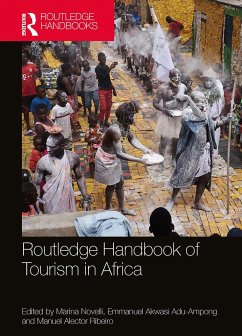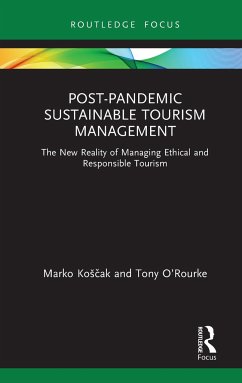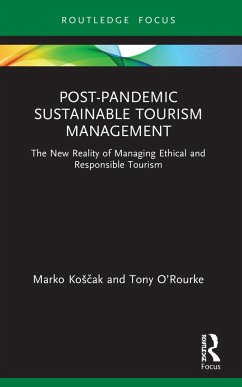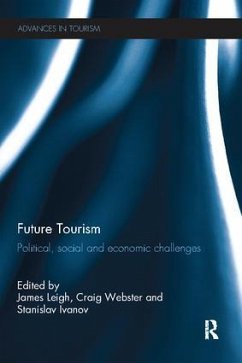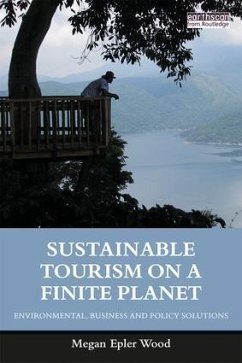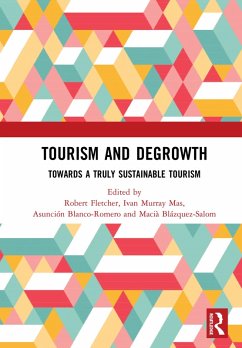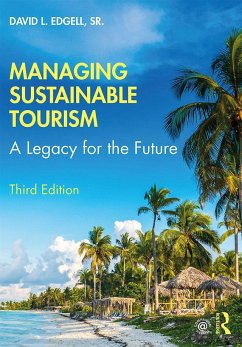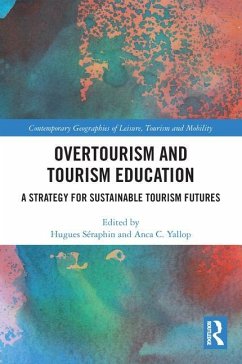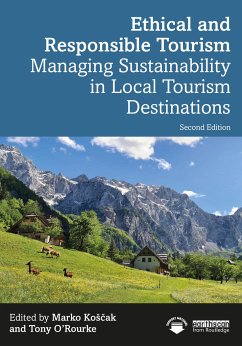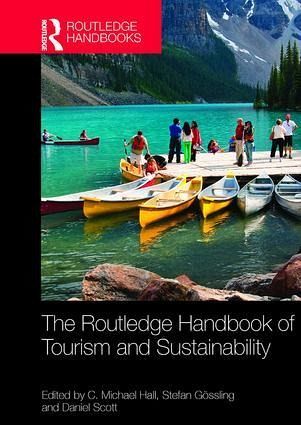
The Routledge Handbook of Tourism and Sustainability
Versandkostenfrei!
Versandfertig in 6-10 Tagen
70,99 €
inkl. MwSt.
Weitere Ausgaben:

PAYBACK Punkte
35 °P sammeln!
Sustainability remains one of the major issues in tourism today. Concerns over climate and environmental change, the fallout from the global economic and financial crisis, and the seeming failure to meeting UN Millennium development goals have only reinforced the need for more sustainable approaches to tourism, however they be defined. Given the centrality of sustainability in tourism curricula, policies, research and practice it is therefore appropriate to prepare a state of the art handbook on the relationship between tourism and sustainability.This timely Handbook of Tourism and Sustainabil...
Sustainability remains one of the major issues in tourism today. Concerns over climate and environmental change, the fallout from the global economic and financial crisis, and the seeming failure to meeting UN Millennium development goals have only reinforced the need for more sustainable approaches to tourism, however they be defined. Given the centrality of sustainability in tourism curricula, policies, research and practice it is therefore appropriate to prepare a state of the art handbook on the relationship between tourism and sustainability.
This timely Handbook of Tourism and Sustainability is developed from specifically commissioned original contributions from recognised authors in the field. The handbook is interdisciplinary in coverage and is also international in scope through its authorship and content. The 'start of the art' orientation of the book in terms of both approaches to and management of tourism and sustainability as well as a global assessment of tourism's impacts means that the book willbe a benchmark for any future assessment of the field.
This volume provides a systematic guide to the current state of knowledge on tourism and sustainability. It commences with a state-of-the-art assessment of tourism's global environmental, e.g. climate, emissions, energy use, biodiversity, water use, land use, and socio-economic effects, e.g. economic impacts, employment and livelihoods, culture. The assessment then provides the context for the following sections that provide accounts of the main theoretical frameworks and constructs that inform tourism and sustainability, management tools and approaches, and the approaches used in different tourism and travel industry sectors. The book concludes with a section that examines emerging and future concerns in tourism and sustainability such as peak-oil, post-carbon tourism, green economy and transition tourism.
This is essential reading for students, researches and academics interested in the possibilities of sustainable forms of tourism and tourism's contribution to sustainable development. It's assessment of tourism's global impact along with its overviews of sectoral and management approaches will provide a benchmark by which the sustainability of tourism will be measured for years to come.
This timely Handbook of Tourism and Sustainability is developed from specifically commissioned original contributions from recognised authors in the field. The handbook is interdisciplinary in coverage and is also international in scope through its authorship and content. The 'start of the art' orientation of the book in terms of both approaches to and management of tourism and sustainability as well as a global assessment of tourism's impacts means that the book willbe a benchmark for any future assessment of the field.
This volume provides a systematic guide to the current state of knowledge on tourism and sustainability. It commences with a state-of-the-art assessment of tourism's global environmental, e.g. climate, emissions, energy use, biodiversity, water use, land use, and socio-economic effects, e.g. economic impacts, employment and livelihoods, culture. The assessment then provides the context for the following sections that provide accounts of the main theoretical frameworks and constructs that inform tourism and sustainability, management tools and approaches, and the approaches used in different tourism and travel industry sectors. The book concludes with a section that examines emerging and future concerns in tourism and sustainability such as peak-oil, post-carbon tourism, green economy and transition tourism.
This is essential reading for students, researches and academics interested in the possibilities of sustainable forms of tourism and tourism's contribution to sustainable development. It's assessment of tourism's global impact along with its overviews of sectoral and management approaches will provide a benchmark by which the sustainability of tourism will be measured for years to come.




